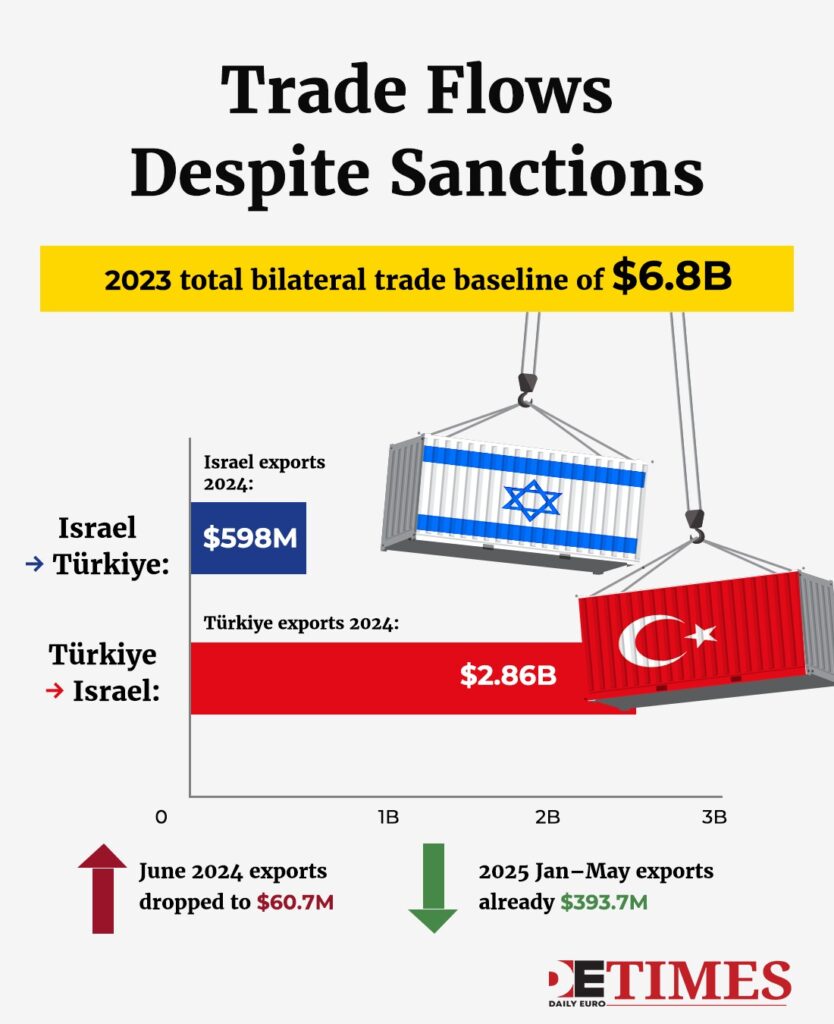Türkiye and Israel have begun what amounts to a technological arms race wrapped in historical grievances. Last week, Turkish President Recep Tayyip Erdogan unveiled the Steel Dome air defence system worth $460 million consisting of 47 vehicles.
Days later, Benjamin Netanyahu acknowledged for the first time the Armenian events during World War I. Both moves set up a confrontation that stretches beyond regional politics into military capability and memory wars.
Turkish Steel Dome Targets Israeli Know-How
The Steel Dome project launched in August 2024 explicitly models itself on Israel’s Iron Dome technology. Türkiye has announced a $1.5 billion facility dubbed the “single largest defense industry investment” in Turkish history. The facility will double production capacity for Steel Dome components and create what officials call Europe’s largest air defence manufacturing hub.
Iron Dome interceptors cost $40,000-50,000 each with TAMIR missiles reaching similar prices. Turkish officials acknowledge these costs require export partnerships with allied countries to make Steel Dome economically viable. The system integrates sea-based and land-based platforms with next-generation sensors to protect against missiles and aerial threats.
Historical Memory Becomes Diplomatic Weapon
Netanyahu’s recognition of the Armenian events reverses decades of Israeli policy designed to preserve Turkish partnerships. Previously, Israeli governments avoided acknowledging Ottoman-era mass killings to maintain regional cooperation. The prime minister told an American podcaster he personally recognises what happened to Armenians between 1915 and 1923.
Thirty-four countries have officially recognised these events as systematic elimination of populations as of 2025. The list includes Argentina, Austria, Brazil, Canada, France, Germany, Greece, Italy, Mexico, the Netherlands, Poland, Portugal, Russia, Sweden, the United States and Uruguay. Only Türkiye and Azerbaijan maintain denial of the characterisation while acknowledging wartime deaths occurred.
Economic Paradox Defies Political Theatre
Neither country benefits economically from escalating tensions despite the confrontational rhetoric. Türkiye remained Israel’s fifth-largest supplier in 2024 with exports totaling $2.86 billion according to UN trade data. This occurred despite official Turkish trade restrictions announced in May 2024.
Israel imported $2.87 billion worth of Turkish goods during 2024 while exporting $598.58 million to Türkiye. Turkish exports to Israel reached $393.7 million in the first five months of 2025 alone despite official embargos. The total bilateral trade was valued at $6.8 billion in 2023.
Turkish exports fell dramatically in June 2024, dropping to $60.7 million from previous levels. Yet businesses continue finding ways to maintain commercial relationships through third countries and indirect channels.

Mediterranean Testing Ground Emerges
Türkiye may deploy Steel Dome technology to Syria where Israeli forces regularly conduct operations. Syrian officials have expressed interest in Turkish military support following recent political changes in Damascus. The system could limit Israeli tactical options while giving Syrian forces new defensive capabilities previously unavailable.
Cyprus presents another potential flashpoint where Turkish and Israeli interests clash. Türkiye controls northern Cyprus while Israel maintains energy partnerships with the internationally recognised government in the south. Steel Dome deployments could change military calculations across the eastern Mediterranean where several countries compete for influence over energy resources and shipping routes.
Beyond current conflicts, Türkiye plans to export Steel Dome technology to allied nations as confirmed by ASELSAN officials. This creates potential for Turkish air defence systems to operate in multiple locations where Israeli forces might need to conduct operations.
Proxy Competition Replaces Partnership Logic
Türkiye and Israel built cooperation during previous decades around shared concerns about regional instability and common economic interests. Those foundations have eroded as both countries pursue different strategic directions. Türkiye prioritises relationships with Gulf states and former Ottoman territories. Israel focuses on Abraham Accords partnerships and Mediterranean energy projects.
The shift from partnership to competition reflects broader changes in Middle Eastern alignments where traditional alliances no longer provide predictable frameworks. Countries increasingly pursue bilateral arrangements based on immediate interests rather than historical partnerships.
Turkish President Erdogan stated Steel Dome “will inspire confidence in friends and fear in enemies” during the system’s unveiling ceremony. Israeli officials have not responded directly to Turkish air defence developments but continue expanding Iron Dome capabilities with newinterceptor technologies and extended range systems.
Steel Dome versus Iron Dome represents more than military competition. The systems symbolise competing visions for regional order where Türkiye and Israel seek to establish separate spheres of technological and political authority rather than collaborative security arrangements.
Keep up with Daily Euro Times for more updates!
Read also:
A Tug of War: One Island and Two Visions
European Recognition: The Abraham Accords Lose Their Silver Lining
A Tug of War: Türkiye and its Rivals in Syria






